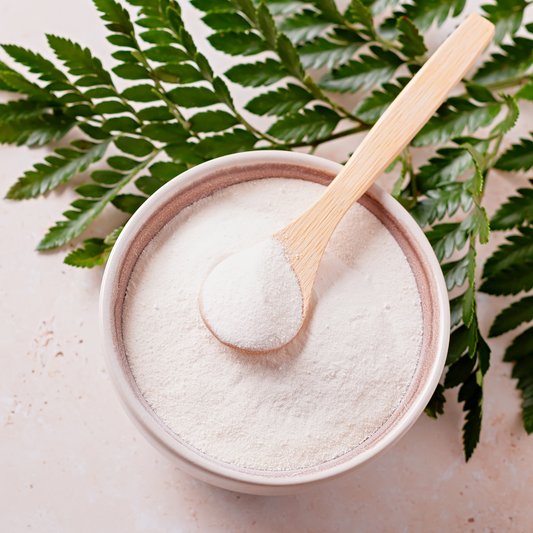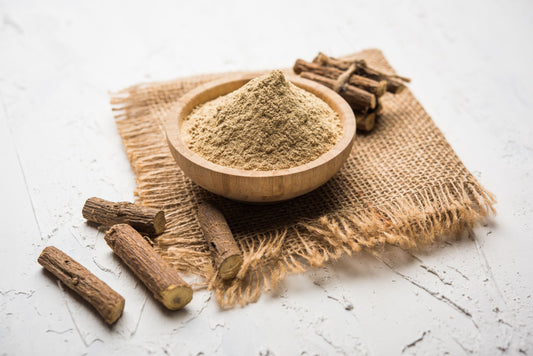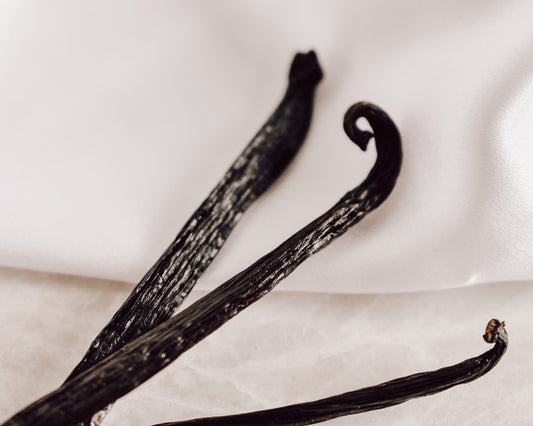Read on to discover whether ginger can help with heartburn and tips on incorporating it into your diet for maximum benefits.
What causes heartburn and acid reflux?
Heartburn and acid reflux are caused by the flow of stomach acid back into the esophagus. This can happen when the lower esophageal sphincter (LES), a muscle that normally prevents acid from flowing back up, becomes weak or relaxes. Certain factors can contribute to the development of heartburn and acid reflux, including obesity, pregnancy, hiatal hernia, certain medications, and certain foods and drinks such as spicy or fatty foods, citrus fruits, alcohol, and caffeine. Understanding the causes can help you make lifestyle changes and incorporate natural remedies like ginger to manage and prevent these symptoms.
Can ginger help relieve heartburn symptoms?
Ginger has been used for centuries as a natural remedy for various digestive issues, including heartburn and acid reflux. It contains compounds called "gingerols" and "shogaols", which have anti-inflammatory properties that can help reduce inflammation in the esophagus and stomach. Ginger also helps to stimulate digestion and increase the production of digestive enzymes, which can aid in the breakdown of food and prevent the buildup of stomach acid. Heartburn is also often accompanied by bloating and nausea. It has also been found to prevent dyspepsia, flatulence, and bloating. In a controlled clinical trial, ginger was found as effective for relieving nausea and vomiting. In other words, ginger can help prevent heartburn by aiding digestion and reducing inflammation in the esophagus. In the case of heartburn relief, ginger can reduce bloating and relieve nausea.
Acid Reflux and Ginger Tea - Different Ways to Consume Ginger.
There are several different ways to consume ginger for relief from heartburn and acid reflux. One option is to incorporate fresh ginger into your diet by adding it to meals or beverages. You can grate fresh ginger and add it to stir-fries, soups, or smoothies. Another option is to make ginger tea by steeping sliced ginger in hot water for about 10 minutes. You can also find ginger supplements in the form of capsules or tablets, which can be taken as directed but can be difficult to swallow.
The most convenient form for consumption is ground ginger.
Try our Heartburn Elixir:Luxe Carob which contains ginger powder and 6 other natural ingredients to fight heartburn! It’s flavored with carob and vanilla and tastes like chocolate!
Other health benefits of ginger.
In addition to providing relief from heartburn and acid reflux, ginger offers a range of other health benefits. Ginger has been found to be effective against various GI cancers. It has more than 50 antioxidants which scavenge free radicals from the body cells and prevent or reduce the damage caused by oxidation. Specifically, 6-Shogaol, the main bioactive principal in ground ginger, has exhibited the most potent antioxidant and anti-inflammatory properties. Researchers also found 6-Shogaol to be an effective therapeutic agent for treating neurodegenerative diseases, including dementia. Luckily, 6-Shogaol is more potent in powdered ginger, one of the key ingredients in our Heartburn Elixir: Luxe Carob.
With the ability to regulate insulin levels, ginger is also able to help prevent diabetes.
The numerous health benefits of ginger goes on. It truly is a versatile and powerful herb for improving overall health and well-being.
Can ginger cause heartburn? Potential side effects and precautions.
Ginger is generally safe, according to some studies, even for pregnant women. When consuming in large amounts ( > 6 grams per day) however, some individuals may experience mild side effects such as heartburn, diarrhea, or stomach discomfort. Doctors and nutritionists recommend limiting daily intake to 3 to 4 grams. To prevent any side effects and still reap the benefits, 1 serving of our Heartburn Elixir: Luxe Carob contains a little less than 0.5 grams of ginger root. Therefore, it’s safe for everyone!
Heartburn Home Relief with Ginger
Long used by Asians to treat ailments, ginger can help prevent heartburn by aiding digestion and reducing inflammation. This tasty herb also helps with heartburn relief, by reducing bloating and relieving nausea. It also has cancer-preventing antioxidants, neuroprotective agents, and insulin regulating properties. Side effects are only likely when consumed in large amounts. Safely reap all the benefits of ginger, and get the most out of its bioactive compound 6-Shogaol with our tasty Heartburn Elixir: Luxe Carob!
Thanks so much for visiting GERD Health, as a girl with GERD, I fully understand the struggle in adjusting our lifestyles to accommodate our health! You don’t have to be alone in this journey, join us in reclaiming our food freedom by entering your email to stay up to date on all things GERD Health! Let’s connect in the comments!
References:
Zick, S. M., Turgeon, D. K., Vareed, S. K., Ruffin, M. T., Litzinger, A. J., Wright, B. D., Alrawi, S., Normolle, D. P., Djuric, Z., & Brenner, D. E. (2011). Phase II study of the effects of ginger root extract on eicosanoids in colon mucosa in people at normal risk for colorectal cancer. Cancer Prevention Research, 4(11), 1929–1937. https://doi.org/10.1158/1940-6207.capr-11-0224
Nikkhah Bodagh, M., Maleki, I., & Hekmatdoost, A. (2018). Ginger in gastrointestinal disorders: A systematic review of Clinical Trials. Food Science & Nutrition, 7(1), 96–108. https://doi.org/10.1002/fsn3.807
Anh, N. H., Kim, S. J., Long, N. P., Min, J. E., Yoon, Y. C., Lee, E. G., Kim, M., Kim, T. J., Yang, Y. Y., Son, E. Y., Yoon, S. J., Diem, N. C., Kim, H. M., & Kwon, S. W. (2020). Ginger on human health: A comprehensive systematic review of 109 randomized controlled trials. Nutrients, 12(1), 157. https://doi.org/10.3390/nu12010157
Makhdoomi Arzati, M., Mohammadzadeh Honarvar, N., Saedisomeolia, A., Anvari, S., Effatpanah, M., Makhdoomi Arzati, R., Yekaninejad, M. S., Hashemi, R., & Djalali, M. (2017). The effects of ginger on fasting blood sugar, hemoglobin a1c, and lipid profiles in patients with type 2 diabetes. International Journal of Endocrinology and Metabolism, In Press(In Press). https://doi.org/10.5812/ijem.57927
Arablou, T., Aryaeian, N., Valizadeh, M., Sharifi, F., Hosseini, A., & Djalali, M. (2014). The effect of ginger consumption on glycemic status, lipid profile and some inflammatory markers in patients with type 2 diabetes mellitus. International Journal of Food Sciences and Nutrition, 65(4), 515–520. https://doi.org/10.3109/09637486.2014.880671
Prasad, S., & Tyagi, A. K. (2015). Ginger and its constituents: Role in prevention and treatment of gastrointestinal cancer. Gastroenterology Research and Practice, 2015, 1–11. https://doi.org/10.1155/2015/142979
Ha, S. K., Moon, E., Ju, M. S., Kim, D. H., Ryu, J. H., Oh, M. S., & Kim, S. Y. (2012). 6-shogaol, a ginger product, modulates neuroinflammation: A new approach to neuroprotection. Neuropharmacology, 63(2), 211–223. https://doi.org/10.1016/j.neuropharm.2012.03.016
Masuda, Y., Kikuzaki, H., Hisamoto, M., & Nakatani, N. (2004). Antioxidant properties of gingerol related compounds from ginger. BioFactors, 21(1–4), 293–296. https://doi.org/10.1002/biof.552210157
F., B. I. F., & Wachtel-Galor, S. (2011). Chapter 7: The Amazing and Mighty Ginger. In Herbal medicine: Biomolecular and clinical aspects (2nd ed.). essay, CRC Press. https://www.ncbi.nlm.nih.gov/books/NBK92775/
Lohsiriwat, S. , Rukkiat, M. , Chaikomin, R. , & Leelakusolvong, S. (2010). Effect of ginger on lower esophageal sphincter pressure. Medical Journal of the Medical Association of Thailand, 93(3), 366. - PubMed https://pubmed.ncbi.nlm.nih.gov/20420113/
Dugasani, S., Pichika, M. R., Nadarajah, V. D., Balijepalli, M. K., Tandra, S., & Korlakunta, J. N. (2010). Comparative antioxidant and anti-inflammatory effects of -gingerol, -gingerol, -gingerol and -shogaol. Journal of Ethnopharmacology, 127(2), 515–520. https://doi.org/10.1016/j.jep.2009.10.004










